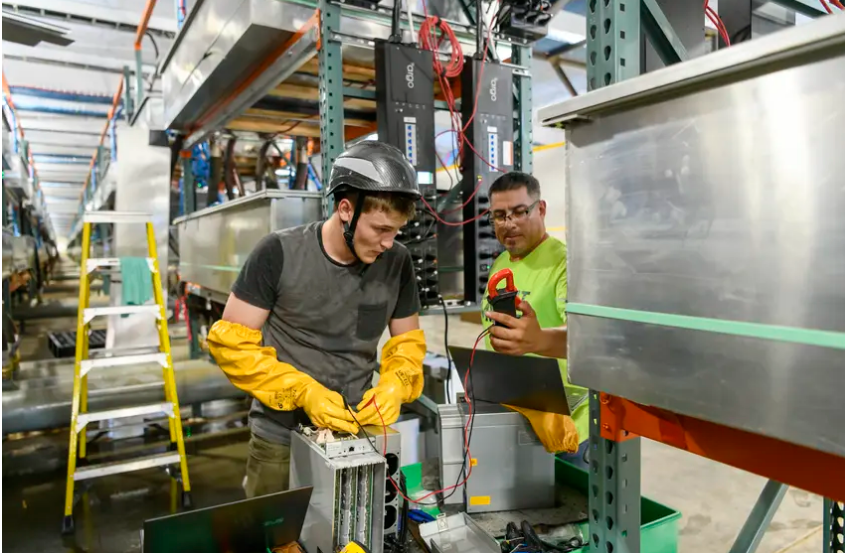 2023-12-10
2023-12-10
Sign up for The Brief, our daily newsletter that keeps readers up to speed on the most essential Texas news.
Jacob Rodriguez was driving a John Deere tractor in a West Texas cotton field when he received a phone call that would change his life.
“I was pulling a 59-foot air seeder … and at the same time I was on the phone having my interview,” Rodriguez, 29, said.
On the other end of the phone early this year were representatives from a new business that was coming to Dickens County, a community of around 2,000 people an hour east of Lubbock.
By March, Rodriguez had quit farming cotton — something he called “just another job” — and began training to work in a cryptocurrency mine.
The county had exactly what London-based Argo Blockchain was looking for: plenty of open land and easy access to affordable power, thanks to a large wind farm built there more than a decade ago.
Texas political leaders have been promoting the state as a destination for companies producing bitcoin and other digital currencies, touting the state’s reputation for low taxes and cheap power. Around 30 have come in the past decade, and dozens more have expressed interest in moving to Texas.
But instead of moving to the state’s large urban areas — which have the extensive infrastructure and large workforce that attracts most relocating companies — cryptocurrency companies have largely done the opposite and located in rural areas, according to Lee Bratcher, president of the Texas Blockchain Council, a group promoting crypto growth and innovation.
Navigating rural Texas
Cryptocurrency is still a relatively new industry — bitcoin, the first and best-known digital currency, launched in 2009 — and has seen its fortunes rise and fall dramatically this year just as virtual currencies seemed to explode in popularity among both professional and individual investors.
The price of bitcoin plunged more than 50% in value the first half of this year from its peak in November 2021, and the dive continues. Major companies such as Coinbase, a large cryptocurrency exchange, have tanked in value, and firms have lost billions. The fall in cryptocurrencies is part of a wider economic downturn, spurred by inflation, soaring interest rates and economic disruption caused by Russia’s war in Ukraine.
Meanwhile, a decision by China’s government last year to ban cryptocurrency production has had ripple effects all the way to Texas.
“Following the 2021 crypto crackdown in China, many crypto miners came to Texas,” said Alexander Hernández Romanowski, a crypto research analyst at Tribal.credit and a crypto scholar at Rice University’s Baker Institute.

